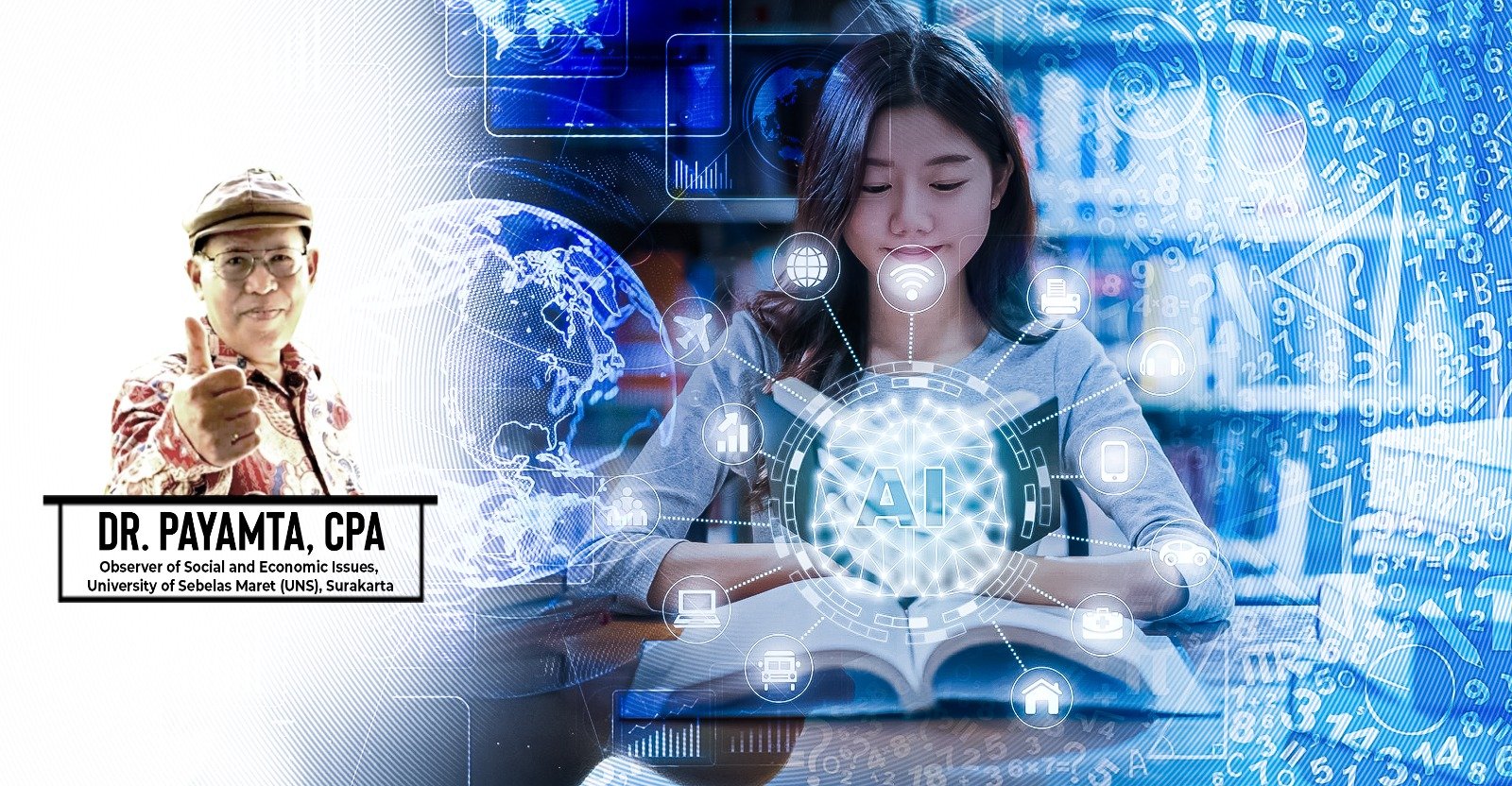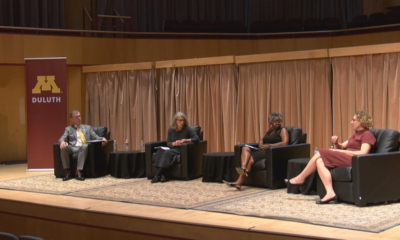Education
Education Under the Shadow of AI: A Future Without Teachers and Books?

Education is not just changing the contents of the head, but lighting the light in the soul.
AS ARTIFICIAL intelligence (AI) reshapes our world, education stands at a crossroads. Once envisioned as a tool to support learning, AI is now on the verge of redefining — and potentially eroding — the very foundations of human education. Books are being harvested for data, teachers are being sidelined, and students rely more on algorithms than reflection. The question looms: are we still educating people, or are we letting machines take over the role of education itself?
AI, particularly generative models like ChatGPT and Gemini, now dominate the academic habits of students. From writing essays to summarizing texts and solving problems, these tools offer instant assistance. But this convenience comes with a cost. When students rely on machines to answer questions, they bypass the essential process of learning — the struggles, discussions, and critical thinking that develop understanding and character.
One stark example lies in how AI models are trained. According to reports, millions of books — including copyrighted ones — have been used without permission to feed these algorithms. These texts, once seen as vessels of wisdom and cultural memory, are now mere data points in statistical models. This shift not only undermines intellectual property rights but also reduces books to soulless inputs for machines.
This mechanization of knowledge mirrors the erosion of educational depth. A 2024 study by Times Higher Education found that over 60% of university students in Southeast Asia had used AI tools to complete academic work. In Indonesia, internal campus surveys show that more than 40% of students used ChatGPT to write papers without approval. The 2023 UNESCO Global Education Monitoring Report warns that unchecked tech use in classrooms erodes critical thinking and worsens learning inequality.
Indeed, Indonesia’s reading literacy remains low. In the 2022 PISA rankings, the country placed 71st out of 81 nations. Only 1 in 1,000 Indonesians are regular book readers, according to the National Library. This situation is exacerbated by the rise of AI: when knowledge is just a click away, students skip the reflective depth that comes from reading or engaging with teachers. They chase answers, not understanding.
Meanwhile, national education policy struggles to keep pace. The Merdeka Curriculum introduced by the Ministry of Education encourages creative, project-based learning. However, it lacks sufficient emphasis on ethical digital literacy, especially concerning AI. There are no national modules that teach how AI works, its risks, or how to use it responsibly. This leaves students vulnerable to misinformation and teachers without guidance.
Legally, the education system has yet to acknowledge AI’s presence. Indonesia’s education laws, including the current revisions to the National Education System Act, make no mention of AI. There are no ethical frameworks or usage guidelines, leaving schools to navigate this new frontier blindly. As a result, AI is often misused — even trusted more than textbooks or teachers, despite being prone to errors or ethical blind spots.
The danger here is not just academic. It threatens Indonesia’s 2045 vision of becoming a prosperous, developed nation powered by a young, productive population. If the youth of today become passive tech users without critical thinking, moral awareness, or creativity, the so-called “demographic bonus” could turn into a demographic liability.
Teachers and books are more than content providers. They shape values, ignite imagination, and nurture empathy — things AI cannot replicate. Without them, education risks becoming mechanical, sterile, and stripped of humanity.
Thus, a shift is needed. First, digital and AI ethics must be integrated into the national curriculum. Second, educational regulations must address AI use, safeguard intellectual property, and support teachers as ethical guides. Third, reading culture must be revived — in schools, families, and communities — to keep the spirit of learning alive.
Education is not about filling minds with data but shaping humans with wisdom. Technology must serve that mission, not replace it. A future without teachers and books is not progress — it is the unraveling of civilization itself.
* Payamta, Observer of Social and Economic Issues, University of Sebelas Maret (UNS), Surakarta
Education
NetDragon Showcases AI-Powered Education Solutions at UNESCO Digital Learning Week 2025 – itemonline.com
Education
RFK Jr. testifies on Capitol Hill, AI in education, generational change in Congress – Spectrum News
Education
STC Computer Information Technology program Leads the Way for AI Education

Texas Birder Business
By Joey Gomez
McALLEN, Texas – Artificial Intelligence (AI) is at the core of South Texas College’s Bachelor of Applied Technology in Computer Information Technology (BAT-CIT) program as it pioneers industry certificates on a statewide and national scale for students.
Leadership and faculty with the program say they have now awarded more than 2,250 certificates to students taking BAT-CIT courses in the five years since integrating what the program calls AI-focused “microcredentials” tied to Google and Amazon Web Services (AWS) in fall 2020.
The priority on industry credentials is giving graduates a unique and competitive edge in the job market, according to program Department Chair Saeed Molki.
“In the entire state of Texas and throughout the entire United States, no one has done such a thing,” Molki said, referring to the number of credentials awarded to students. “We do not overstate all the work we have done for students in the last five years.”
Crediting college leadership including STC President Ricardo J. Solis, Ph.D., along with Vice President and Provost for Academic Affairs and Economic Development, Anahid Petrosian, Ph.D., and Dean of Math, Science, IT and Bachelor Programs Ali Esmaeili, Ed.D., for encouraging the push toward microcredentials and AI, Molki said the effort began with a vision to embed industry certifications directly into courses.
The effort culminated this year in 2025 as the program added four new AI-related courses, which includes an Advanced Artificial Intelligence course for fourth-year students and an upcoming Data Science and Machine Learning in Cybersecurity course which begins in spring 2026.
Each course is meant to build on the last to create a progressive pathway to advanced AI concepts, according to BAT-CIT faculty.
“So essentially, students are going to be getting a certificate with every class,” said Assistant Professor of Computer Science, Nicholas Hinojosa. “Last semester, we even implemented that every student who is taking our 1301 class, which is our most basic class, will complete a certificate in Google Artificial Intelligence Essentials. These are students who are coming fresh from high school to STC.”
The BAT-CIT program offers seven industry-recognized certifications, that align with coursework so students earn credentials as they progress through the program.
CIT Assistant Professor Menghung Wu, Ph.D., emphasized that the curriculum builds from Python to machine learning and then to advanced AI which ensures students understand both the technical skills and theory behind AI systems.
“AI is no longer just a tool, it’s the foundation of how technology is advancing,” Wu said. “This is why in our program, we don’t just introduce students to the basics, we guide them step-by-step into the core of artificial intelligence. That deeper knowledge is what will set them apart as innovators in the workplace.”
BAT-CIT student Andrea Rios is the founder and current president of the program’s Computer Science Club and organizes various activities and speakers for students. Reflecting on the priority the program places on AI-related credentials, Rios said faculty are doing a phenomenal job by embracing the new technology and gauging the industry.
“The biggest way the faculty in the BAT-CIT program help students is by understanding the market and the workplace and realizing just how quickly it changes, especially in the technology industry,” Rios said. “At STC, we are taught to adapt and I think that’s the most important thing I have taken from my time here.”
For more information on STC’s Computer and Information Technologies program visit www.southtexascollege.edu/academics/computer-info-tech/index.html.
-

 Business1 week ago
Business1 week agoThe Guardian view on Trump and the Fed: independence is no substitute for accountability | Editorial
-
Tools & Platforms4 weeks ago
Building Trust in Military AI Starts with Opening the Black Box – War on the Rocks
-

 Ethics & Policy1 month ago
Ethics & Policy1 month agoSDAIA Supports Saudi Arabia’s Leadership in Shaping Global AI Ethics, Policy, and Research – وكالة الأنباء السعودية
-

 Events & Conferences4 months ago
Events & Conferences4 months agoJourney to 1000 models: Scaling Instagram’s recommendation system
-

 Jobs & Careers2 months ago
Jobs & Careers2 months agoMumbai-based Perplexity Alternative Has 60k+ Users Without Funding
-

 Education2 months ago
Education2 months agoVEX Robotics launches AI-powered classroom robotics system
-

 Podcasts & Talks2 months ago
Podcasts & Talks2 months agoHappy 4th of July! 🎆 Made with Veo 3 in Gemini
-

 Funding & Business2 months ago
Funding & Business2 months agoKayak and Expedia race to build AI travel agents that turn social posts into itineraries
-

 Education2 months ago
Education2 months agoMacron says UK and France have duty to tackle illegal migration ‘with humanity, solidarity and firmness’ – UK politics live | Politics
-

 Podcasts & Talks2 months ago
Podcasts & Talks2 months agoOpenAI 🤝 @teamganassi


























